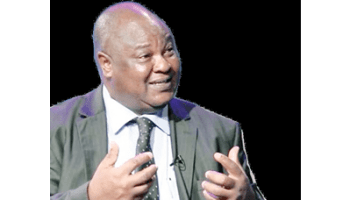Ayo Teriba, one of Nigeria’s foremost economists has said that the Central Bank of Nigeria (CBN) cannot wriggle its way out of some of the economic challenges, particularly, volatility in the foreign exchange market resulting in unstable exchange rate and price stability by mere administrative regulations, according to an interview published in Sunday Telegraph
Ayo said those measures like hike in the monetary policy rates “are extreme measures, which produced only temporary respite with the exchange rate appreciating for a few weeks, but then it has began to depreciate in the last few weeks, showing that those are the temporary effects which is the point that when you are trying to stabilize exchange rate, no one solution is likely to have a lasting effect because if you are trying to use a regulatory solution, and that regulation will produce a temporary effect until the market participants find a way around that regulation.”
Consequently, he said only foreign reserve adequacy can guarantee stable exchange rate.
“So the only way out of an unstable exchange rate is foreign reserve adequacy. It’s either reserve levels are adequate and exchange rate will be stable or they are not adequate and exchange rate will not be stable. We should not carry on as if reserve adequacy does not matter. It is the lesson we are learning in the last six months.
In the interview, the economist advised that to shore up reserves, our economic managers should remember that Nigeria’s equity issuance headroom is likely to be more than a hundred times larger than our debt issuance headroom, hence the need for the government to expend much effort in chasing equities instead of debts from the Breton woods and other multilateral institutions so as to increase the foreign reserves.
According to him, the nation’s income and output levels have been declining since 2015, occasioning the continued decline in the reserves, adding, “debts anchored on declining GDP or exports are not sustainable.”
Nigeria, he said, needed to have switched from depending on debt related action which has been responsible for the weakening of GDP and exports prospects and rather to depending on equity related to our corporate, real estate and infrastructure assets, which give a bigger equity issuance headroom
“There are 2 ways you can survive economic crises, either you adopt the output-centric strategy, if you have the capacity to rev up the growth of your output and everyone can see that your future growth output is very bright, you can borrow, Creditors will give you money because your future growth is certain, so output centric strategy is debt-financed.”
ALSO READ:Atedo Peterside Faults CBN’s Policy On Naira, Says Hurried Appreciation Approach Won’t Work
But, he added that it is a common knowledge that our output has been stagnant, our exports have been declining, and we have ran out of honorable debt issuance options, noting that “we should seek for asset-centric strategy, which means we are offering our real estate, infrastructure, and corporate assets to raise equity at home and abroad like India, Saudi Arabia, UAE among others. Our equity issuance headroom is huge because Nigeria doesn’t even have any state owned company that is listed on any stock market.”
Teriba said the lesson we are learning is what macro economists refer to as the impossible trinity or the monetary policy trilemma as Nigeria cannot have 3 conditions together, exchange rate volatility and capital mobility and then expect her monetary policy to be effective.
